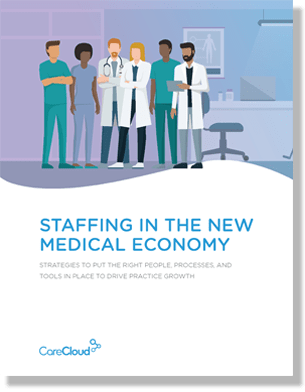When I was in college, neuroethics was becoming ‘a thing,’ and I thought the idea of interdisciplinary fields like those took the best of medical science and the humanities to alter the way we view the world. But that’s just it – the way we view the world. With the advent of healthcare IT graduate university programs, we could be witnessing a revolution in the way we use the world.
These kinds of programs don’t just connect medical science with philosophy. They take art and design, video games, movies, social media, mobile technology, and natural language processing technologies to create relevant and handy graduate programs and train professionals specifically for this emerging healthcare field.
To promote healthcare IT programs in higher education, the Office of the National Coordinator for Health Information Technology (ONC) conferred $116 million to 82 community colleges and nine universities, including three of the schools mentioned below.
Check out our favorite healthcare IT programs and other university initiatives.
University of California – Los Angeles (UCLA)
The university’s School of Public Health recently teamed with Health Net, Inc. to expand the health literacy social media program T2X. The site is limited to adolescents and features curated lifestyle and fitness content, contests, games, quizzes, video sharing and other interactive tools.
Programs like this are part of a broader trend in education that emphasizes engaging, skill-building content, ranging from health to digital media and even basic skills like how to learn cursive, which is making a comeback as a form of cognitive and fine motor development.
The project was funded by a $1.1 million National Institutes of Health research grant with the intention of discovering whether low-income teens could more readily access and use their medical insurance, become more engaged in their personal health and develop wholesome lifestyles.
UCLA also offers a graduate certificate program in Health Care Management and Leadership, which includes healthcare IT courses like Health Information Systems and Technology.
Cornell University
Cornell offers a six-month combined distance and hands-on training graduate program at New York Presbyterian Hospital, which it shares with Columbia’s healthcare IT sector. Cornell is one of nine universities receiving ONC grant money.
The program consists of much experiential learning. It is also career oriented – students have a resume consultant and guest speakers discussing career opportunities at the institution or company they represent.
Programs like Cornell’s seek to train a new workforce of healthcare IT professionals that possess practical academic knowledge of EHRs. And the school is committed to getting these candidates out there – Commencement day was followed by a job fair with company representatives advertising more than 200 job openings.
University of Southern California (USC)
While USC doesn’t offer a healthcare IT academic program, its Keck School of Medicine’s Cardiovascular Department has developed the Center for Body Computing (CBC). The Center is dedicated to creating the future of healthcare via network implanted devices, wearable monitors and digestible chips.
The Center aims to flourish preventative healthcare by working with physicians to develop relationships between personal health statistics, entertainment and gamification and moving away from healthcare’s teacher-pupil relationship between doctor and patient.
In a Fast Company article last year, Oscar-winning producer Edward Saxon discussed the future of healthcare IT via mobile apps and movies, and mentions work he’s doing with the CBC that involves integrating moviemaking techniques into medicine.
University of Minnesota
The University of Minnesota is a hub for healthcare IT education and research and is establishing itself as an early front-runner among universities working in the field.
The University received ONC grant money to fund a Health IT Certificate program, and it boasts a strong Biomedical Health Informatics Department. But what sets it apart is its Center for Design in Health, a research center tucked away in the university’s College of Design.
With Dr. Kathleen Harder at the helm, the Center performs groundbreaking research in EHR usability, redesigns operating rooms and analyzes workflows of patient care units.
The Center also assists healthcare organizations like the Institute for Clinical Systems Improvement and performs systematic analyses of surgery processes at eight Minnesota hospitals.
Columbia University
There is a growing demand for healthcare IT professionals, and Columbia’s training program is pumping out quality education and job placement assistance to the program’s graduates.
The NYC-based school is the only Ivy other than Cornell to offer a Health IT Certificate, and was also chosen to receive ONC grant funding.
The six-month training program is designed to prepare students for professional positions in the healthcare IT field, including lessons on health information management, health information privacy and security, and computer programming. Columbia also offers a Master’s degree in Applied Biomedical Informatics.
Georgia Institute of Technology
In addition to its respected graduate Health IT Certificate program, Georgia Tech teamed with IBM to launch One Million Healthy Children last year, a program that uses big data modeling to analyze children’s health data.
The initiative analyzes models of fee-for-service health care and how factors like transportation, health services, and socioeconomic status affect the health of children.
Furthermore, GT joined with Open Health Tools with the aim of “providing a virtual environment in which diverse stakeholders work together to unleash the innovations necessary to bring the industry to its future state,” said Steve Rushing, director of Health@EI2, part of the school’s Enterprise Innovation Institute.
Do you think the healthcare IT university trend will fizzle out after grant funds are used up, or are we seeing the first traces of a new academic field?




